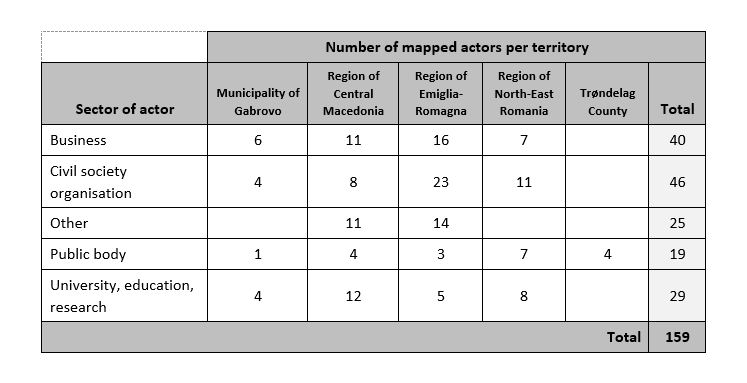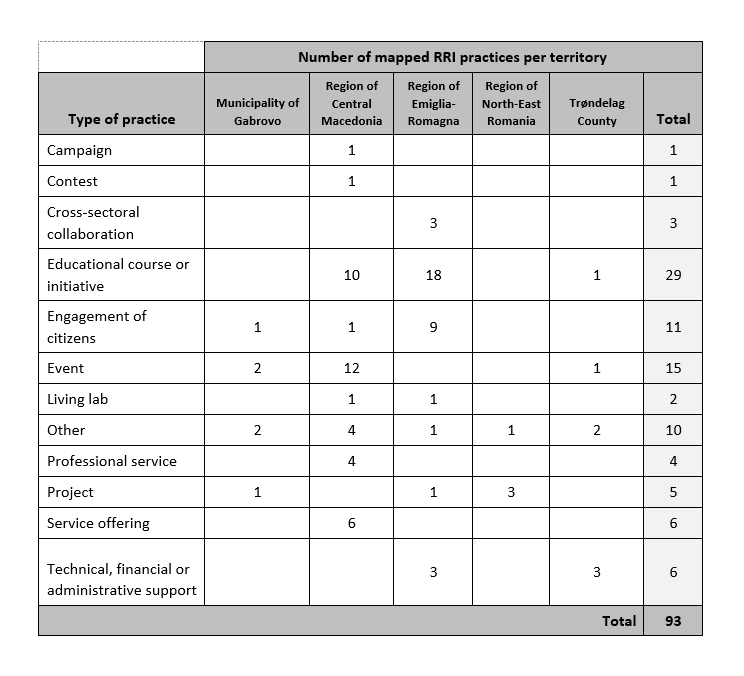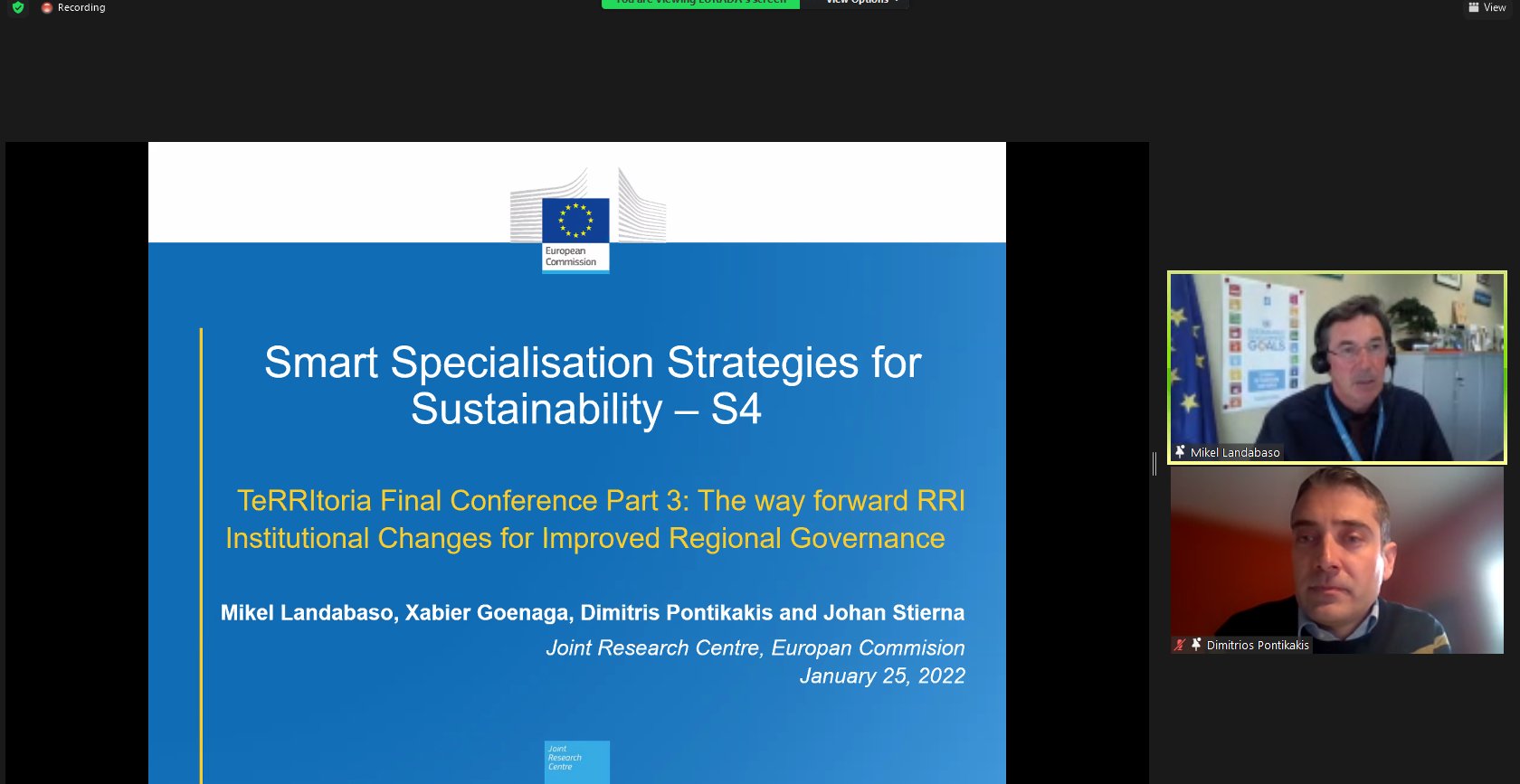Map of the territorial milieux
In the framework of the TeRRitoria project, a Map of Territorial Milieux has been developed. Within the project, 5 transformative experiments with the adoption of Responsible Research and Innovation (RRI) approach in European regional and territorial R&I system will be carried out starting in August 2020. The experiments will take place in the Region of Central Macedonia (Greece); Region of Emilia Romagna (Italy); Region of Trøndelag (Norway); Region of North-East (Romania); and Municipality of Gabrovo (Bulgaria). The mapping process revolves around the identification of key societal milieu stakeholders and RRI-oriented or compatible practices and initiatives, as well as supporting policies, and seeks to prepare the territories for the co-design and actual implementation of the territorial experiments. The mapping exercise encompassed five activities to be implemented in each of the five experiments participating in the project: mapping the main actors present in the five territories; mapping of RRI initiatives already present in the territories selected; mapping of the “territorial factors” – social, economic, demographic and cultural risks and emerging opportunities for each of the involved territories; and mapping the main “territorial policies” developed by actors at different levels of governance (municipality, regions, national and EU) related with the experiment to be carried out.
Map for the TeRRItoria consortium
It is better to explain the concept of map for the TeRRItoria consortium, in fact “a map is understood as a structured information with added reflection to provide navigational instructions for the design and implementation of the transformative experiments. As such, each territorial map aims to provide all involved stakeholders with the background information, as well as suggestions for specific steps to be taken during the implementation of the territorial experiment”.
Approach used for the mapping process
During the mapping process the major approach employed by the research partners was desk research. The partners reviewed existing public information, websites, policy documents, as well as secondary sources. Therefore, the partners collected and structured qualitative data focused on actors, experiences, factors and policies. Throughout the mapping in the participating territories a total of 159 actors and stakeholders and 93 RRI-oriented related practises have been mapped.


Challenges
Identified challenges during the mapping are ranging from under representation of women and socially excluded groups in STEM (Science, technology, engineering and mathematics), to systematic integration of RRI in the definition and development of smart specialisation strategies, to bridging the gap between research and social needs, to reverting depopulation of the regions and to strengthening collaboration between universities and the regional/local business community.
After this analysis, it comes to light that the focus of the transformative experiments is different in each territories considered, in fact three of the involved territories plan to focus their transformative experiments on supporting the implementation of their smart specialisation strategies (Municipality of Gabrovo, Region of North-East Romania, and Region of Emilia-Romagna). The Region of Central Macedonia, Greece places the focus on developing a policy on gender equality and inclusion of socially excluded groups in the regional R&I system. Trøndelag region will address the gaps between the research and regional needs and demand.
Conclusions
During the design and implementation of the transformative experiments the involved territories will work on integrating more than one RRI key in their development policies. Public engagement is the most relevant RRI key to the participating territories (will be in the focus of the transformative experiments in 4 territories), followed by science education (in 3 territories) and governance (in 3 territories). Gender equality, ethics and open access are identified by 1 territory each.
You can find the Map of the Territorial Milieux by clicking here.





